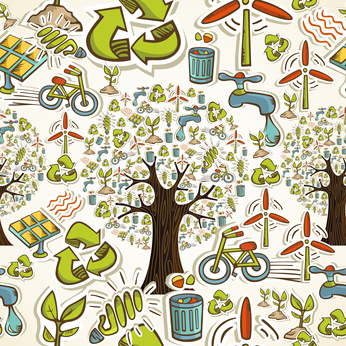New York – On June 21, the United Nations launched the fourth edition of “Moving towards a Climate Neutral UN” – the annual progress report on the UN’s journey towards climate neutrality. This report details the UN’s greenhouse gas emissions in 2011 and some of the activities undertaken in 2012 to reduce them.
Greenhouse gas inventories were compiled for 63 UN entities, covering over 221,000 UN staff across hundreds of locations. The results reveal that the UN’s greenhouse gas emissions totalled 1.8 million tonnes of CO2 equivalent in 2011 – corresponding to the yearly energy-related emissions of 350,000 European households. As in previous years, air travel still makes up 50 per cent of per capita emissions (4 tonnes per capita) making this the biggest challenge for the UN in reducing its carbon footprint.

The emissions data was compiled using internationally recognised guidance based on the Greenhouse Gas Protocol Corporate Standard, a widely used methodology developed by the World Resources Institute (WRI) and the World Business Council for Sustainable Development (WBCSD). The UN greenhouse gas inventory includes emissions from all activities that are under the direct operational and/or financial control of the organization, such as the heating and cooling of buildings, and the travel of staff members.
As well as presenting a breakdown of each UN agency, Moving towards a Climate Neutral UN makes a clear business case for integrating sustainability management into day-to-day operations by illustrating the cost savings that have resulted from measures taken in UN facilities, including the Universal Postal Union (UPU), World Food Programme (WFP), Food and Agricultural Organization (FAO), International Monetary Fund (IMF) and International Civil Aviation Organization (ICAO). Efforts include as changing building façades or installing energy-efficient elevators.
Further examples are presented demonstrating the cost savings that can be achieved by dealing efficiently with waste management and the quick wins to be gained simply through greater awareness and staff engagement.
The UN’s journey towards climate neutrality started in June 2007 when Secretary-General Ban Ki-moon made public his ambition to make the United Nations more efficient in its operations. Later that year at a meeting of the UN System’s Chief Executives Board for Coordination, the Executive Heads of UN agencies, funds and programmes committed to move their respective organizations towards climate neutrality. In particular, they agreed to:
- Estimate the greenhouse gas emissions of UN system organizations consistent with accepted international standards;
- Undertake efforts to reduce greenhouse gas emissions;
- Analyze the cost implications and explore budgetary modalities of purchasing carbon offsets to eventually reach climate neutrality.
In 2012, this mandate was strengthened and broadened by Member States and UN leaders to go beyond just greenhouse gas emissions and include all environmental impacts resulting from UN facilities and internal operations, as well as through programmes and planning.
“The UN will continue to cut greenhouse gas emissions and take a more holistic approach to environmental sustainability management,” writes UN Secretary-General Ban Ki-Moon in the introduction to the report. “As the world addresses the climate challenge and strives toward a new, comprehensive, legally binding agreement, the Organization must lead by example,” he adds.
In a change from previous editions, which have taken the form of a 40-page report, the 2012 edition aims to reach a wider audience by presenting the key messages in a short brochure, which opens out into an eye-catching poster.
Check the following link to read/download the Brochure:
http://www.greeningtheblue.org/resources/climate-neutrality
Source: UNEP.



















